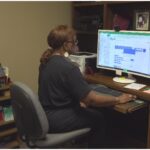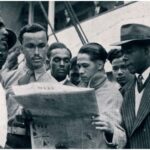Blue plaque honours Black housing pioneers in Birmingham
Twelve Caribbean men who built the UK’s first Black housing association have been honoured with a blue plaque in Birmingham.
The group, all part of the Windrush Generation, launched a self-build project in the 1970s after facing racism and housing discrimination. Their effort led to the construction of 12 homes — 10 on Millward Street and two on Green Lane.
Now, decades later, their work has been recognised with a plaque awarded by the Nubian Jak Community Trust. The sign stands as a lasting reminder of their commitment to community, dignity and progress.
Access Self Build: building homes and hope
Faced with racist signs like “No Blacks, No Irish, No Dogs,” the group decided to act. Led by Ben Lee, the men started Access Self Build, a grassroots effort to create safe homes for Black families.
Rather than rely on a system that excluded them, they used their own skills and vision. They laid bricks, hammered nails, and created a space where Black families could feel safe and valued.
“They used their vision, resilience, and community spirit to overcome adversity,” said Dr. Yana Johnson MBE, daughter of founding member Keith Johnson.
From local project to national legacy
Access Self Build later evolved into ACAFESS — the African Caribbean Association for the Furthering of Economic and Social Sustainability. The organisation is now seen as a turning point in the fight for housing justice in the UK.
Dr. Johnson, who grew up in one of the homes, helped bring her father’s story to light. She worked with the Nubian Jak Trust to secure the recognition and document the group’s journey.
“This plaque doesn’t just honour 12 men,” she said. “It honours an entire generation that believed in doing for themselves.”
Community resistance and lasting strength
At the time, some locals opposed the project. Critics worried that the new homes would become a “slum.” But the group stood firm.
All 12 houses still stand today, solid and lived in. More importantly, they represent Black strength, unity, and self-reliance in the face of exclusion.
“The greatest thing of all,” said Nubian Jak founder Dr. Jak Beula, “is overcoming the discrimination that came with trying to find accommodation, and going on to build their own streets of gold.”
A blueprint for self-determination
Though the men didn’t see themselves as pioneers, their actions set a powerful example. They showed what’s possible when communities take control of their own futures.
Dr. Beula added: “The men didn’t fully appreciate what they had achieved at the time. But their legacy lives on — not just in bricks and mortar, but in the story of community-led change against the odds.”
The plaque is more than a symbol. It’s a reminder that when systems fail, community can rise.






Leave a Reply